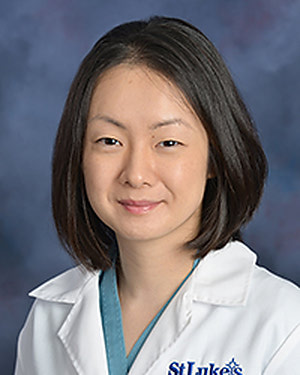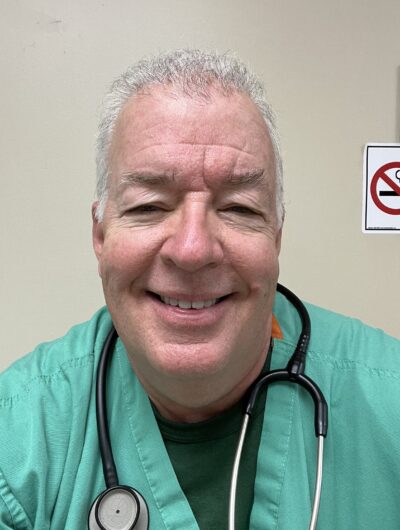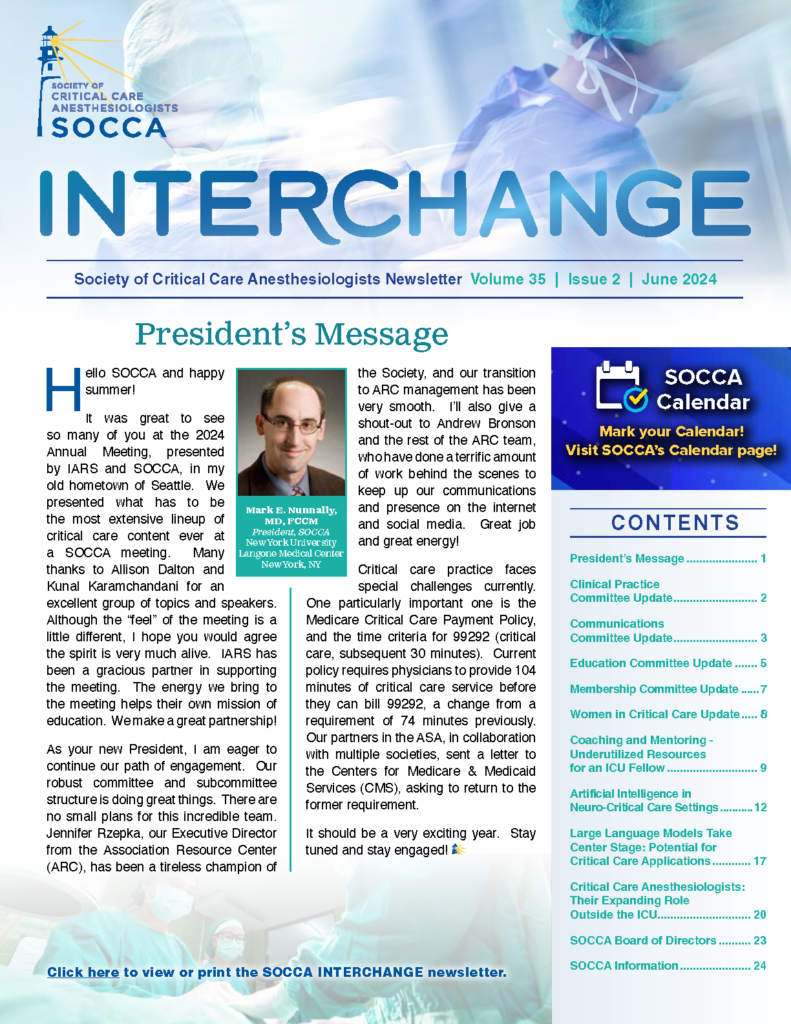Intensivists in Private Practice Update
As we wrap up this year, we would like to take this opportunity to highlight the Intensivists in Private Practice subcommittee and provide an update on some of our recent activities.
Many of the medical professional societies and organizations are tailored to physicians in academic practice. However, approximately 70% of hospital care delivered in the United States is provided by non-academic facilities. Similarly, a significant percentage of SOCCA’s membership works in a non-university hospital setting. SOCCA’s Intensivists in Private Practice subcommittee, led by chair Dr. Frank O’Connell, was created to help physicians who transitioned to private practice stay current in their field and remain active in the critical care community. The subcommittee also acts as a forum for members to explore and discuss issues that are unique to non-academic clinicians. Some of the barriers and challenges include the creation of new intensivist programs, billing, program fund allocations by hospital administration, division of time between the OR and ICU, transition from academic to private practice, and private practice career opportunities for current fellows.
Our subcommittee holds quarterly Zoom meetings. While many of our prior meetings have been open forum discussions, our recent meetings have focused on specific topics relevant to critical care anesthesiologists who work in private practice groups or community hospitals. Recent meetings have delved into subjects such as contract negotiations, the establishment of anesthesia critical care presence in the ICU, and the transition from open to closed units.
Throughout the year, our members have also been involved in various SOCCA webinars. This past year, Dr. Robert deQuevedo was a panelist on the webinar “Critical Care Everywhere: The Expanding Role of the Anesthesia Intensivist.” Dr. deQuevedo has been in private practice for over 20 years and he shared his experience with successfully establishing a community ICU practice. Dr. Pinxia Chen also had the opportunity to participate in the Job Fair webinar where she shared her private practice perspective. An ongoing goal is to increase our outreach and member engagement. This year, our Private Practice group welcomed a new member, Dr. Ryan Matika. Dr. Matika has been a wonderful asset to the group and has been an active contributor to our meetings.
In the upcoming year, our subcommittee hopes to engage more of our private practice and community-based colleagues. There are a significant number of critical care anesthesiologists working in the community and we hope that our group will grow and continue to serve as a resource. Potential plans include the creation of a Private Practice section on the SOCCA website, which will provide a platform for our members to share their experiences, concerns, questions, and perspectives. We are excited to see our current members as well as meet new colleagues in private practice in the new year.
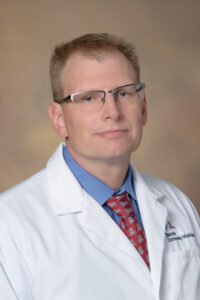
Ryan Matika, MD,
Banner University Medical Center
Tucson, Arizona
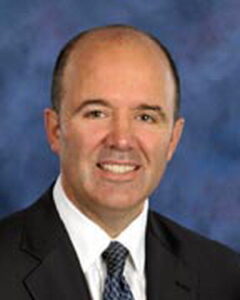
Robert deQuevedo, MD
St. Luke’s University Health Network
Bethlehem, Pennsylvania
